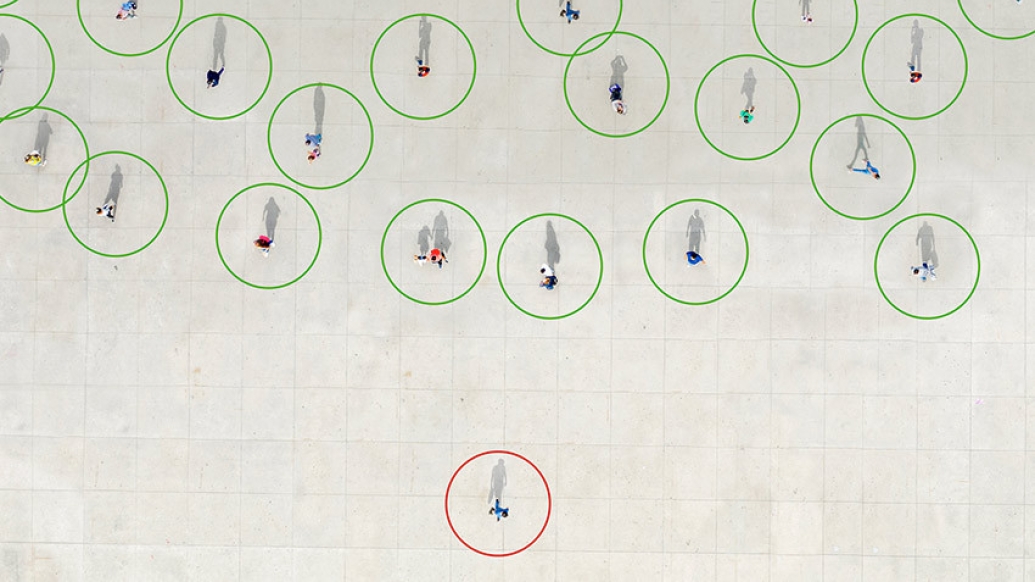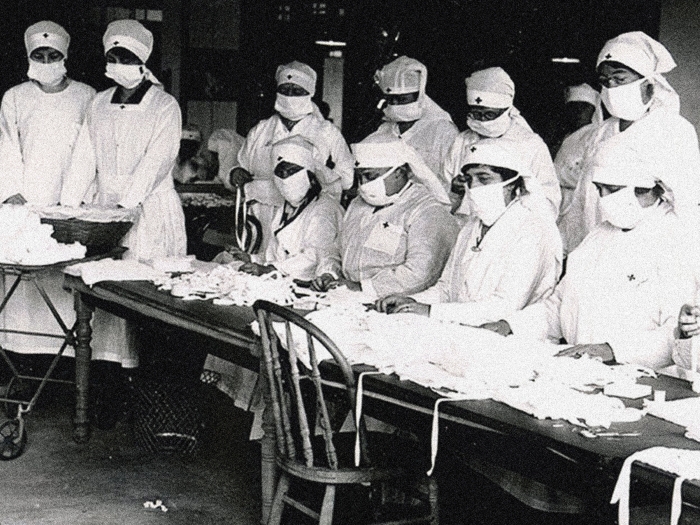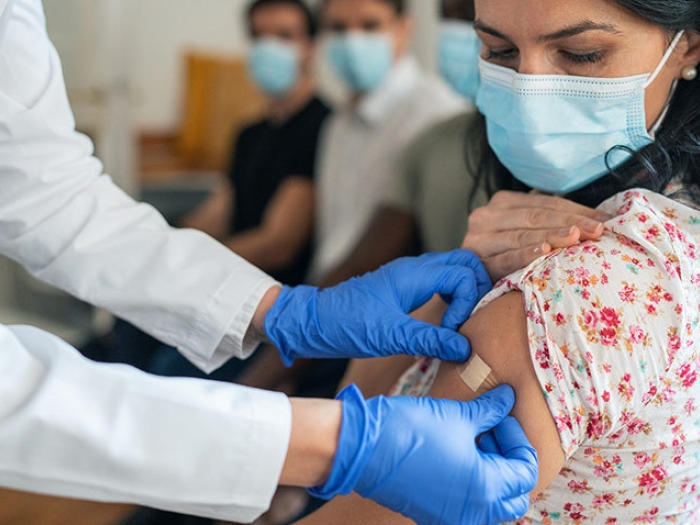An infectious disease expert explains what to know about the virus’ mutation now.
1:53 PM
Author |

If you check the Centers for Disease Control and Prevention COVID-19 data tracker, which tracks cases in each state, much of the country is colored bright red, indicating a high rate of transmission of COVID.
A large chunk of the population is still unvaccinated against COVID-19, fewer people are wearing masks, and more people are getting together—all while the highly contagious Delta variant of the coronavirus continues to spread.
Last week, the CDC recommended that even vaccinated people wear masks indoors in areas with substantial or high rates of transmission to try to turn the tide and reduce cases. That recommendation was based in part on data gathered from a July 4th holiday COVID outbreak in Provincetown, MA that seemed to indicate that even vaccinated people could spread the virus. The news left many confused and concerned about just how well they are protected.
MORE FROM MICHIGAN: Sign up for our weekly newsletter
There is danger in reading too much into this case, however, said Adam Lauring, M.D. Ph.D., an infectious disease specialist at Michigan Medicine.
"While this is clearly something to pay attention to, in the CDC report, they are pretty clear in the discussion about the limitations and what they are saying and not saying. Of course, not everyone made it that far," noted Lauring. For example, as more people are vaccinated, it follows that more cases detected will be in vaccinated individuals.
Lauring also noted that a nasal swab COVID test measures how much viral RNA is present in a person's nose but can't measure how much of that virus is infectious. "The amount of genome present is a marker, but it is not the same thing as saying these people are equally as infectious," said Lauring.
Another important point is that a swab is taken at one moment in time.
"You could picture a situation where vaccinated people with Delta have a really steep rise and then a really steep fall in the amount of virus shed, whereas an unvaccinated person would have a steep rise that would remain high for longer."
Even with all the unknowns, what was true before Delta is true now: the majority of cases will be in unvaccinated people. But, he added, "the big change is before, we were thinking vaccinated people would not transmit that often, whereas it appears that vaccinated people with the Delta variant will transmit more often than with other variants," said Lauring.
Like Podcasts? Add the Michigan Medicine News Break on iTunes, Google Podcasts or anywhere you listen to podcasts.
What does this mean practically? This means that it will take additional measures, like wearing masks in certain situations—such as indoor spaces with a lot of local cases—in addition to vaccines to stop the spread of COVID.
Early data show that the vaccines are still more than 80% effective at preventing severe illness and death and are still reducing transmission.
As far as boosters go, said Lauring, "I'm more concerned about people who have not been vaccinated at all."
And in the U.S., case counts continue to be highest in areas with low vaccination rates, evidence that the vaccines are working against all variants.
What about kids under 12 who don't yet have an approved COVID vaccine?
Lauring noted that the risk of severe illness and death is low for children and that hasn't changed, even with Delta. But as more adults become vaccinated, more of any future cases will be in unvaccinated people, including kids.
"The more transmissible the virus is, the higher the percentage of immune people you'll need to shut down transmission."
The best thing to do to protect kids, immunocompromised individuals and to reduce the chance for the emergence of even more transmissible variants remains to get as many people vaccinated against COVID-19 as possible to safely approach herd immunity.
Lauring noted that COVID is probably here to stay.
"My sense is people are coming to grips with what that means. From a policy level, we'll have to figure out what level of circulation and hospitalization we are comfortable with," he said.

Explore a variety of healthcare news & stories by visiting the Health Lab home page for more articles.

Department of Communication at Michigan Medicine
Want top health & research news weekly? Sign up for Health Lab’s newsletters today!





